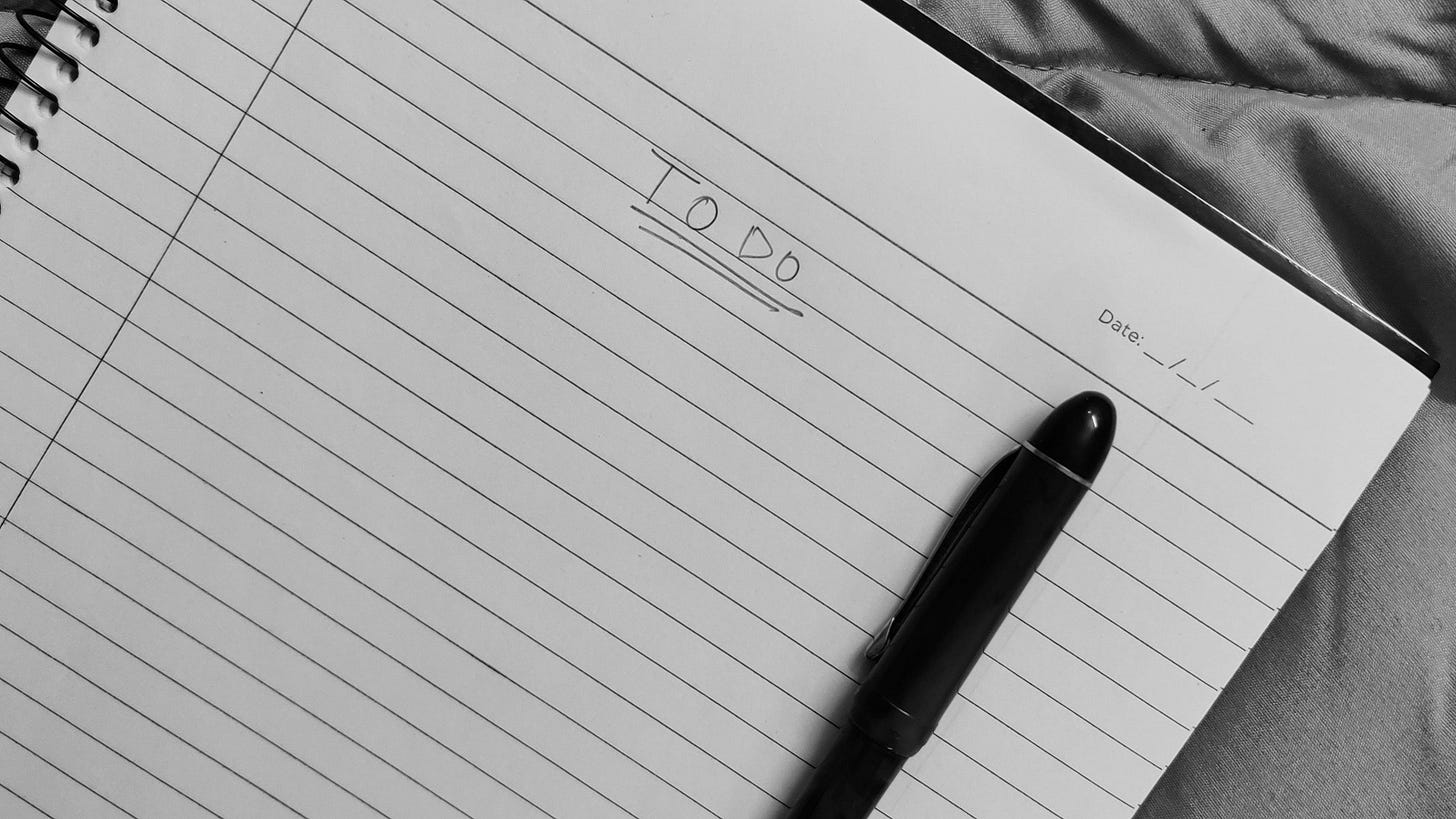
Often at the start of the holiday season, I make a things I don’t do list. I first read the idea in one of Shauna Niequist’s books, but others mentioned similar practices. It’s pretty simple, and you can make a list at any time, but I think it’s especially useful during a busy season. You just choose a few things that you’re not going to do. In December, you might choose to not send Christmas cards, not make plans more than one or two evenings in a week, opt out of hiding an elf on the shelf, use only stick-on bows and tags, etc., etc., etc., — there are endless things to say “no” to. And then, once the list is made, you don’t do those things.
This year, I haven’t given as much time to the practice. Still, I have been careful not to over plan and to remind myself (as my friend brilliantly said years ago) that twinkle lights are magical on their own (no need to fill my kids’ days with activities when they can walk out the front door and find magic).
This year, I’m thinking about a similar but heavier question — Richard Rohr, in Preparing for Christmas1, asks us: What expectations and demands of life can you let go of so that you can be more prepared for the coming of Jesus? This question asks more of me. It asks me to mine my soul for what is standing in the way — it asks me to “let go” to be prepared. For me, this year, it’s not only about doing less but expecting less.
Peace is a particularly hard Advent theme to write about this year. With war, violence, and hunger around the world, gun violence, hate and consumerism closer to home, and grief, loss, and sadness in our own lives — it can be hard to know where to begin
Thomas a Kempis gives us an idea, he says: First, keep the peace within yourself, then you can also bring peace to others.
I keep thinking that if hope can be active2, so can peace. It sometimes feels elusive, but peace is available to us — even when it feels like it belongs to someone else. Even when it feels like it’s not for me with my anxiety and endless struggle for control, with three kids and work demands and a long list of things to do (and not do) — peace is available. I’m learning that when I’m willing to peel away not just the to-dos but the expectations and demands, I begin to experience glimpses of peace.
I wonder if, in our attempt to prepare for the coming of Jesus, we might find a little peace in letting go. That first step is so important — it cannot be skipped. If we want to be peacemakers, we must first find the peace within ourselves, only then can we bring peace to others.
The practice of letting go is only part of keeping peace, but it’s a start. So today, I hope you’ll take a minute and choose to be active in your peacemaking — jot down a few things you’ll skip and begin to release the expectations you’ve placed on yourself. I hope you’ll create a little space for inner peace that will grow into a peace that’s contagious. A peace that passes understanding. A peace that was wrapped in swaddling clothes and laid in a manger all those years ago. A peace that Jesus offered when he said: Peace I leave with you; my peace I give to you.3
Preparing for Christmas, Richard Rohr
Last week’s essay - An Active Hope for Advent
John 14:27



